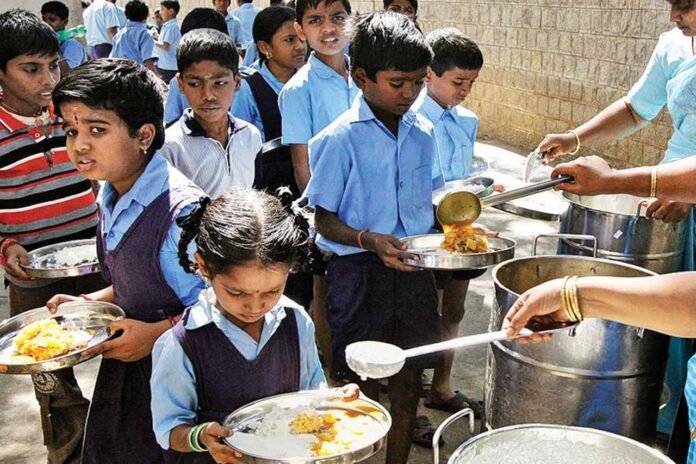The Narendra Modi government shocked public policy observers when it renamed the midday meal scheme at schools the PM Poshan Scheme, announcing that it was an attempt to claim credit for an old program towards which his administration had been stingy.
Related Post – Xiaomi 11 Lite 5G NE Launched in India: Check Price, Specifications
“The cabinet committee on economic affairs (CCEA) has approved the PM POSHAN Scheme for providing hot meals to government and government-aided schools from 2021-22 to 2025-26,” said a release from the government’s press office, the Press Information Bureau (PIB).
The Prime Minister says he was behind the scheme after he had imposed massive budget cuts shortly after taking office in 2014, and it is mind-boggling to see him making that claim. “The midday meal budget today is about half of what it was seven years ago.”
In 2014-15, Modi’s first year in office, Rs 10,527 crore was released for the midday meal scheme, down from Rs 10,927 crore the previous year.
From Rs 9,096 crore to Rs 9,630 crore, the amount released in the subsequent five years.
Related Post – How to Download Covid-19 Vaccination Certificate from Co-WIN, UMANG and Aarogya Setu App
Because the pandemic-induced school closure in 2020-21 meant all students covered under the program had to be provided with dry meals and money instead of having to eat all days, the government needed to release Rs 12,883 crore. According to the budget proposal for 2021-22, the scheme will cost Rs 11,500 crore.
In all, approximately 11.8 crore students attend 11.2 lakh schools that offer the scheme, which ensures that every child who takes classes or takes exams in a government or government-aided school gets a nutritious meal every day.
Ashok Rao, an activist affiliated with the nonprofit Swami Sivananda Memorial Institute supplying food to Anganwadi centers in Delhi, questioned the name change as well.
Madras Municipal Corporation launched this program in 1925 as a solution to help disadvantaged children who did not have access to education. Rao said the company expanded gradually.
Related Post – Top 7 Online Marketing Strategies to Create a Brand Identity for Business
Many states have individually adopted the scheme throughout the decades. After it was adopted at the national level by the P.V. Narasimha Rao government at the Centre in 1995, it was given the name National Programme of Nutritional Support to Primary Education and covered about 2,400 of the country’s 6,000 blocks.
In his view, the government should stop centralized kitchens right away because, as he said, eating at school increased local involvement and awareness.
“The purpose of the MDM Scheme is to provide nutritional support to children and raise awareness of the importance of proper nutrition. Local communities should manage it rather than centralised kitchens,” Rao said.
Related Post – How to Start a Blog and Make Money in 4 Easy Steps
The Congress accuses the Modi government of renaming many of the UPA’s schemes with minor changes, from the Basic Savings Bank Deposit Account (now Pradhan Mantri Jan Dhan Yojana) and the Jawaharlal Nehru National Urban Renewal Mission (now Atal Mission for Rejuvenation and Urban Transformation) to the Accelerated Irrigation Benefits Programme (now Pradhan Mantri Krishi Sinchayee Yojana) and the National Manufacturing Policy (Make In India).
